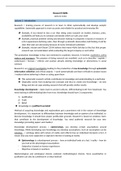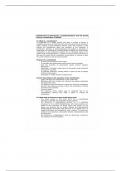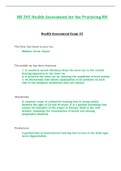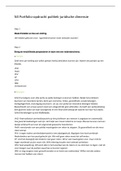College aantekeningen
Detailed summary all 9 lectures Research Skills - Master Strategic Management
- Vak
- Research Skills
- Instelling
- Tilburg University (UVT)
Extensive and detailed summary of all 9 lectures of Research Skills week 1-7 of the course Research Skills, Master Strategic Management - Tilburg University. Include examples, pictures, graphs and links to youtube videos for more explanation on the topics discussed.
[Meer zien]







